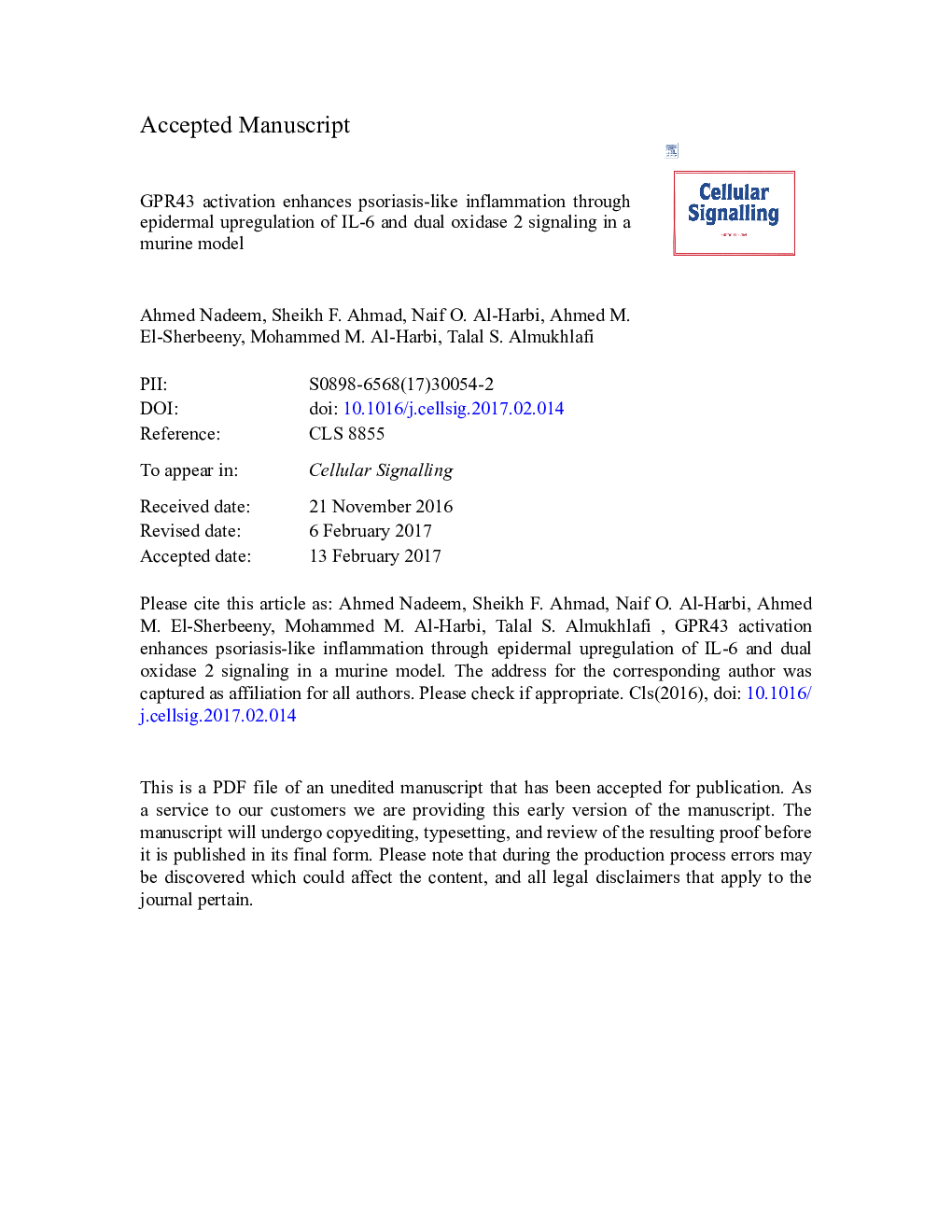| Article ID | Journal | Published Year | Pages | File Type |
|---|---|---|---|---|
| 5509344 | Cellular Signalling | 2017 | 42 Pages |
Abstract
The gut is densely inhabited by commensal bacteria, which metabolize dietary fibers/undigested carbohydrates and produce short-chain fatty acids such as acetate. GPR43 is one of the receptors to sense short-chain fatty acids, and expressed in various immune and non-immune cells. Acetate/GPR43 signaling has been shown to affect various inflammatory diseases through Th17 responses and NADPH oxidase (NOX)-derived reactive oxygen species (ROS) generation. However, no study has previously explored the effects of GPR43 activation during psoriasis-like inflammation. Therefore, this study investigated the effect of acetate/phenylacetamide (GPR43 agonists) on imiquimod induced skin inflammation in mice. Mice were administered phenylacetamide/acetate followed by assessment of skin inflammation, NOXs (NOX-2, NOX-4, dual oxidases), and Th17 related signaling. Our study showed induction of epidermal GPR43 after imiquimod treatment, i.e. psoriasis-like inflammation. Acetate administration in psoriatic mice led to further increase in skin inflammation (ear thickness/myeloperoxidase activity) with concurrent increase in Th17 immune responses and epidermal dual oxidase-2 signaling. Further, topical application of GPR43 agonist, phenylacetamide led to enhanced ear thickness with concomitant epidermal IL-6 signaling as well as dual oxidase-2 upregulation which may be responsible for increased psoriasis-like inflammation. Taken together, dual oxidase-2 and IL-6 play important roles in GPR43-mediated skin inflammation. The current study suggests that GPR43 activation in psoriatic patients may lead to aggravation of psoriatic inflammation.
Related Topics
Life Sciences
Biochemistry, Genetics and Molecular Biology
Biochemistry
Authors
Ahmed Nadeem, Sheikh F. Ahmad, Naif O. Al-Harbi, Ahmed M. El-Sherbeeny, Mohammed M. Al-Harbi, Talal S. Almukhlafi,
